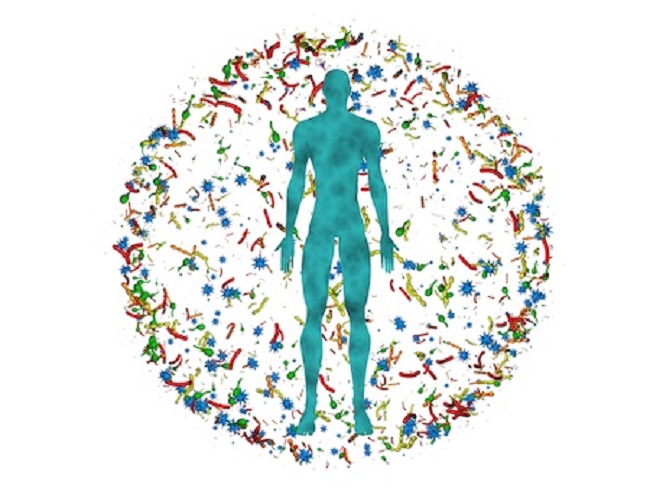Almost daily, I interact with chronically ill people who have longstanding and confirmed vitamin or mineral deficiencies but who, like their physicians, have disregarded these deficiencies as meaningful contributors to their ill health. Indeed, it is often not until they have chased every unicorn diagnosis put forth by every specialist they can afford and have exhausted all other medical means do they consider that those nutrient deficiencies might warrant correction. Sadly, rarely do their doctors agree.
If I am honest, there was a time when I would have done the same. I was raised in the Western medical tradition where real disease was only real if it had a name, responded to a pill, or was caused by some ‘rare’ and ‘entirely-beyond-our-control’ genetic aberration. Nutrient deficiencies, we believed, while real, happened only to others in far off lands where food security was challenged. They did not happen to us in the west where food is plentiful. And, if one did become deficient in a particular vitamin, it was of little or no consequence to health and certainly not responsible for the constellation of symptoms one might experience. It’s just a vitamin deficiency after all.
From this perspective, pills are the real treatment, not vitamins, not minerals and certainly not diet or lifestyle changes. So when I see people with that same mind set, taking multiple drugs to treat what is essentially a nutrient deficiency, I get it. That is how we were brought up. It saddens me though because I know that, like a family member watching an alcoholic spiral, I can do nothing until they hit bottom. I know that nothing I say, no research I provide, or no proof that there is a better way will matter. I know that it is not until their health declines so severely that they consider those nutrient deficiencies, often identified years prior as the symptoms were just beginning to manifest, might warrant attention. Unfortunately, at this point, correcting the damage done by longstanding nutrient starvation and exacerbated by chronic polypharmacy, is incredibly challenging. Unwinding all of the molecular survival mechanism that the body was forced to institute is a tedious and often painful process; one that is difficult to navigate and even more difficult to live through.
Surely, I exaggerate. It’s just a vitamin deficiency, after all. How bad could it be?
Read any of the hundreds of case stories or research articles that we have on this site or read our book about all of the illnesses a deficiency in just one particular vitamin, thiamine, can cause and it will become quite clear that vitamin or mineral deficiencies are nothing to be trifled with. Think about it for a moment, why would we think otherwise? Seriously, what rational person would believe that nutrient deficiencies can be ignored or that the symptoms they evoke could be treated by throwing medications at the problem? Certainly, a particular medication might temper some of the symptoms for a spell, but it will do nothing to resolve the root cause, and because most medications deplete nutrients and damage the mitochondria, it is entirely likely that this approach will make matters worse. But sure, it’s just a vitamin deficiency.
The Body Requires Nutrition
The body requires vitamins and minerals to power the enzyme machinery that performs the functions of life. Every physiological function managed by these enzymes requires one or more vitamins or minerals to operate. When those nutrients are in short supply, the enzymes, and the functions they support, suffer. Bruce Ames, one of the leaders in nutrient research, proposes a triage theory of nutrient management wherein
…a modest deficiency of one of the nutrients/cofactors triggers a built-in rationing mechanism that favors the proteins needed for immediate survival and reproduction (survival proteins) while sacrificing those needed to protect against future damage (longevity proteins). Impairment of the function of longevity proteins results in an insidious acceleration of the risk of diseases associated with aging.
Insidious is the key here. The body is remarkably adaptable and will shift resources around for as long as it can. The problem, while this type of triage keeps everything ‘functioning’ to some degree or another, the damage accrues in the background, slowly and insidiously until everything breaks.
I Was Healthy Until…
“I was healthy until…” is a common refrain from folks who find themselves suddenly in ill-health. Unpeel a few layers and we see that while they were functioning, sometimes at a very high level, they were anything but healthy. Poor diet, regular medication use and other factors contributed to longstanding, albeit frequently unrecognized, nutrient deficiencies. Those nutrient deficiencies then, slowly but surely caused the body to sacrifice long term health for short term survival, until one final stressor catapulted it into crisis. This is the more common scenario. This is what leads to all of those ultra-complicated illnesses that breach every diagnostic designation used in medicine.
When one’s entire physiology is rewired to accommodate the persistent lack of nutrients, over time we get these illnesses that are refractory to any treatment, and sometimes even nutrient repletion itself. That is, individual ‘reacts’ negatively to the very nutrients he/she is deficient in and that are absolutely essential to life. That is what upsets me so much when I watch people downplay or outright ignore these deficiencies. The longer one waits, the worse it will get.
But hey, it’s just a vitamin deficiency.
We Need Your Help
More people than ever are reading Hormones Matter, a testament to the need for independent voices in health and medicine. We are not funded and accept limited advertising. Unlike many health sites, we don’t force you to purchase a subscription. We believe health information should be open to all. If you read Hormones Matter, like it, please help support it. Contribute now.















Excellently written Chandler. Thank you once again!
This needs to spread the world. I can attest first hand. It’s now my passion to increase awareness. I’m working towards becoming an RN2writer. I have so much to share and still learn, three years on high dose thiamine therapy. The now disabled nurse in me, wants to do what I love-care for others. Since I can no longer do the hard physical labor of hospital nursing, I’m planning on learning more about making a career in nurse writing. Educating others on my experiences using thiamine while sharing all you’ve taught me, has become my purpose. I’m so grateful for your continued work increasing B1 education. I know too many personally pleading for help, not finding it. I see symptoms everywhere especially these past three pandemic years. I keep telling people viruses deplete nutrients, namely thiamine! I can attest to seeing DOZENS of some of the East Coast’s TOP DOCTORS, who missed my classic symptoms. I can say this now, but I had no idea myself, until I began researching my symptoms, thinking I either had MS or THIAMINE DEFICIENCY. My PCP kept throwing another prescription for each symptom, even complaining that I had “too many complaints.” To me, this in itself should open a doctor’s eyes and ears, suspecting low thiamine, for as we know, it affects every organ in time.
I was finally diagnosed with dry Beriberi disease, in February 2020, otherwise known as thiamine deficiency (TD), after one astute neurologist made the time to examine me, studying the folder of previous consults I brought him; and listening to my request to rule out MS and TD. Not only did my exam show s/s but my B1 blood test came back deficient, “AGAIN” he’d inform me. Studying my health records, he found I had tested deficient back in 2015. No one told or treated me then.
I had lost so much weight, I looked anorexic at 108 pounds. This should have been a huge red flag slong with my continued reports of sharp shooting burning pains in all extremities, which I was told was “impossible.” No one believed me, which is traumatizing to this day and sadly all too common! It’s heartbreaking to know so many who’ve read my story, learned they too were deficient; yet can’t find a doctor to believe or treat them. After two years of testing me, my excellent neurologist finally admitted he had “little to no training in nutrition or treating deficiencies.” He’s been awesome about encouraging me to be proactive and appreciates me bringing him research as I learn. He now tests all his neuro patients for B1 deficiency due to my case. Sadly, I’ve been left to figure out treatment on my own. Eventually, he worked with a pharmacist trying to put an IV nutrient formula together specific to my needs. I keep it on file st my hospital in case I ever have a serious illness, unable to take thiamine by mouth, for I’m told I’ll need it for life and clearly see I’m dependent on it. I’m able to hold it 3-4 days at most before all symptoms return. I had already learned from Dr Marrs’s and Lonsdale’s book that I’d need to start low and up thiamine slowly. I absorbed every article I could starting with the forms of thiamine written by Dr Lonsdale on the Hormones matter website. I joined their facebook group, Understanding Mitochondrial Nutrient’s reading others posts, learning and sharing my own story as I journeyed forward. Dr Marrs helped me save my life when in kidney failure. After learning from her book, I had confidence to argue with dozens of doctors wanting to treat me with diuretics and steroids, which at that time my instincts were telling me that would surely kill me. I insisted on high dose IV thiamine and in that week, my kidney function began reversing, quite to the surprise of everyone. My case is published on hormones matter in two parts. The second part tells of my very scary near death experience with what I believe was going into wet Beriberi. I had 3+ putting edema to my groin; pleural effusions; chest pains and arrhythmias (was on a Holter monitor all week). Fortunately I understood that thiamine deficiency occurs after covid recovery in many. I sure experienced it. I went to a functional medicine doctor to learn why I was deficient after recovering from covid. He was told about my history of TD and kidney issues, but ordered heavy metal testing using IV CaEDTA, which I’d later learn from Chandler could be nephrotoxic.
Yes, I know firsthand the struggles nerve damage brings. Our eyes are highly innervated and it’s been slowly affecting my eyes but I didn’t understand until now. I’ve much more to write about so hopefully increasing awareness will bring more diagnosis and early treatment to PREVENT SERIOUS DISEASES. I believe so many serious neurological disorders stem from thiamine deficiency. My symptoms have been so like MS, ALS, Parkinson’s; and other neurological disorders on & off at different times these past 3-5 years especially. Let’s keep writing and sharing and learning together. I wouldn’t wish this torture on my worse enemy (hope I have none ?).
Wellness wishes to all!
I really appreciated this info. I have been sick for many years and never been able to find out what is wrong. My friend sent me info on this because she too suffers and knew I had many of the same issues. I have been tested for everything from A-Z. First, it was MS. Then it was kidney issues, diabetes and much more. I sure I can get my now current doctor to listen to me and test me further for for some of these things. Thanks for being willing to share these thoughts to us. It helps or at least gives us hope. Thanks! Donna
Thanks for the excellent information!. Do you plan to publish the book in Spanish? I would love to read it but I couldn’t do it in English. Thank you ♡
That would be handled by the publishers. I do not know.